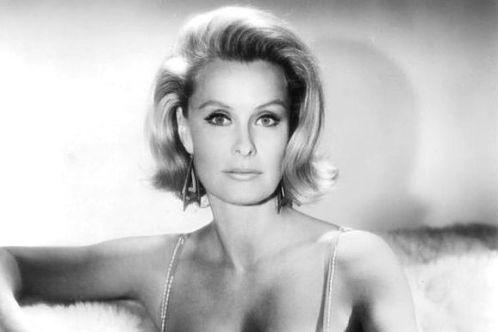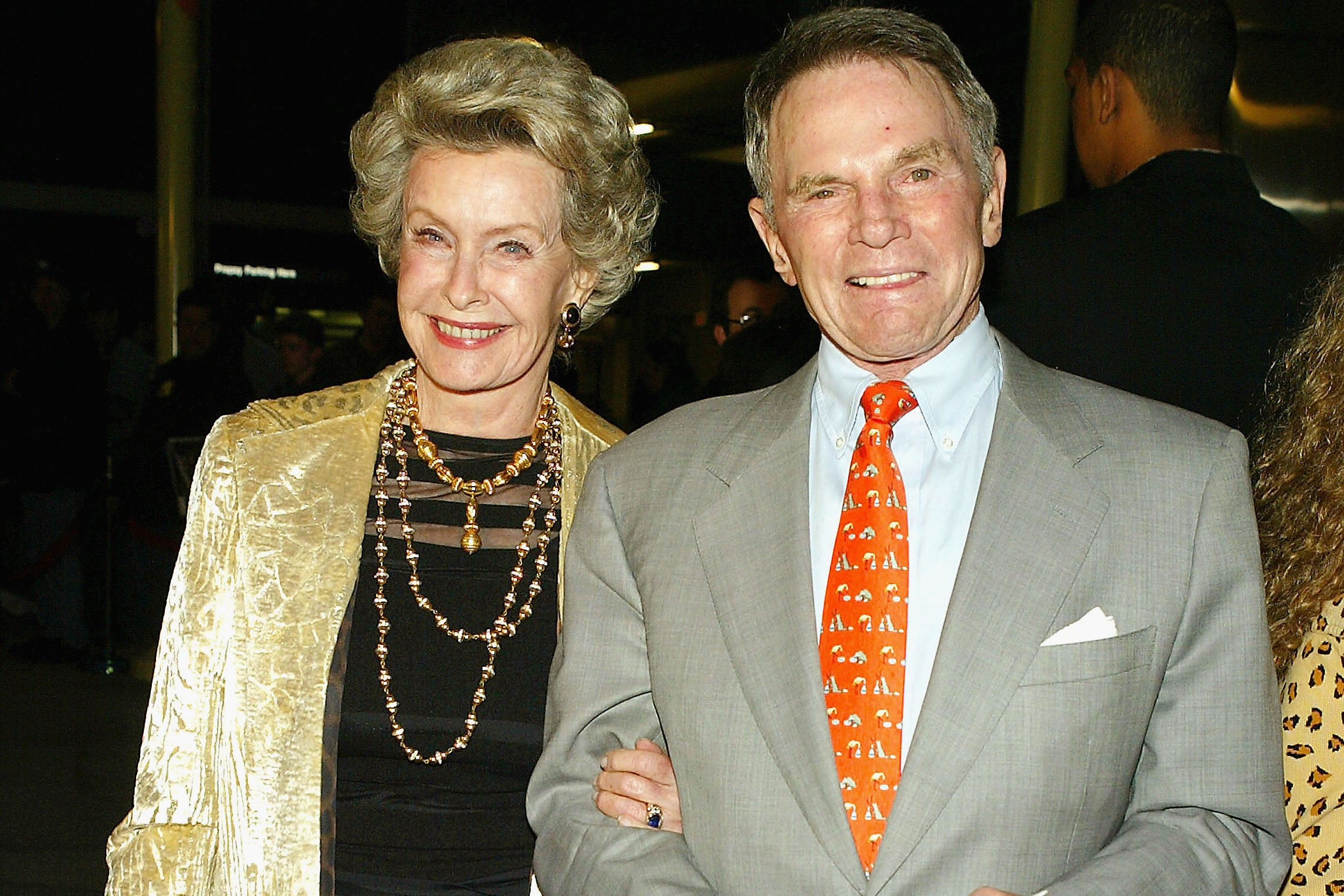Dina Merrill, obituary: Actress, heiress and philanthropist
Ignoring family scepticism, she became an actress and went on to gain Hollywood fame for playing upper-class parts and became a socialite of her time

Dina Merrill was an actress whose aristocratic poise and willowy good looks earned her many film and television roles as well-bred society women – parts that reflected her own life as a scion of two of America’s richest families.
Long after her acting career peaked in the early 1960s, Merrill remained a steadfast presence on the New York social scene. She spent decades as a philanthropist and fund-raiser and was often described as an exemplar of fashion and elegance.
Her parents were the financier Edward Hutton and the breakfast foods heiress Marjorie Merriweather Post, who married into additional fortunes and became a dominant Washington socialite of her era. The Woolworth heiress Barbara Hutton was a cousin.
From a young age, Merrill was determined to pursue acting despite scepticism from her family – she said her father called her a fool. Studio executives and entertainment journalists chalked up her ambition to a lark, asking why she didn't buy a studio instead of bothering with auditions.
She was described as the “Social Register Cinderella” during a Hollywood publicity drive in the late 1950s. She bore a skin-deep resemblance to Grace Kelly but never smouldered with passion or conveyed wrenching emotional vulnerability.
After some TV work, her Hollywood breakthrough came in 1957 as a library reference clerk in Desk Set, a comedy that marked the eighth screen pairing of Katharine Hepburn and Spencer Tracy, but Marlon Brando vetoed her as a co-star the same year in the drama Sayonara because she was “too tall and too damn bossy.”
Instead, in 1959 she played a Navy intelligence officer opposite Jerry Lewis in the farce Don’t Give Up the Ship and a nurse in Operation Petticoat, a wartime comedy with Cary Grant and Tony Curtis. In Fred Zinnemann’s The Sundowners the following year, Merrill played a city woman who marries a ranch owner and suffers from loneliness in the Australian outback. Although a small role, it afforded her a rare chance at an excellent picture, which starred Robert Mitchum and Deborah Kerr.
In Butterfield 8 (1960), a drama that won Elizabeth Taylor an Oscar for best actress for portraying a doomed party girl, Merrill had a thankless part as the long-suffering society wife of Laurence Harvey.
From there, it was back to largely forgettable comedies and dramas, although she later joined the crew of family eccentrics in Robert Altman’s social satire A Wedding (1978).

She was born Nedenia Marjorie Hutton in New York in 1923. Her family's Manhattan apartment had 66 rooms, and their retreat on the North Shore of Long Island had 59. Their sprawling south Florida showplace, Mar-a-Lago, was purchased in 1985 by Donald Trump, who converted it into a private club.
The Huttons entertained on a lavish scale, sometimes hiring the cast of Broadway shows and members of the Ringling Bros. and Barnum & Bailey Circus to perform. But Marjorie was convinced that her husband was philandering with a maid, and the marriage broke up.
Meanwhile, Dina, as she became known, attended Washington's Mount Vernon Seminary, where she excelled at hockey and served as president of the dramatic club. Both activities went against her mother’s wishes, the first because she felt it was unladylike to sweat, the second because it signalled career aspirations other than marriage and motherhood.
After the American Academy of Dramatic Arts in New York, Dina, having adopted the stage name of Merrill, landed a small role on Broadway in the short-lived comedy The Mermaids Singing (1945).
The next year, she married Stanley Rumbough, an industrialist and heir to the Colgate-Palmolive fortune. She did some modelling while raising their three children but harboured unfulfilled acting desires that caused the marriage to rupture.
“Stan wanted me to be a housewife and mother,” she recalled. “But after eight years I had gotten antsy. Men think we can’t do two things at once. They can’t, but we can. Women are more resilient.”
In 1966, she married the actor Cliff Robertson. Her wealth, including more than $50m inherited from her parents, allowed her the freedom to go months and years without work and survive scathing.
Her financial independence also made her more willing to single out wrongdoing by Hollywood’s powerful. The popular boss of Columbia Pictures, David Begelman, had been forging Robertson’s names on checks as part of an embezzlement scheme. At Merrill’s urging, Robertson took his charges public, leading to Begelman’s temporary downfall but also the actor’s unofficial blacklisting for years to come.
After she and Robertson divorced, she married actor-turned-businessman Ted Hartley in 1989. They acquired a majority stake in what was left of the old Hollywood movie studio RKO Pictures.
Merrill, who is survived by her husband and by two children from her first marriage – another son died in a boating accident and a daughter died of cancer – sat for years on the board of her father’s Wall Street investment firm. She also helped raise money for a diabetes charity, and she helped lead an abortion rights coalition within the Republican Party.
“I was very fortunate that I did have everything I wanted handed to me on a silver platter, so to speak,” she said in 1988. “But I also had good training from both parents about the work ethic, about the fact that I was lucky, as they were. And that a lot of that had to be put back into the world.”
Dina Merrill, born 29 December 1923; died 22 May 2017
Join our commenting forum
Join thought-provoking conversations, follow other Independent readers and see their replies
Comments